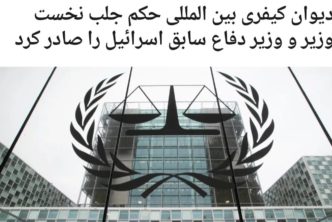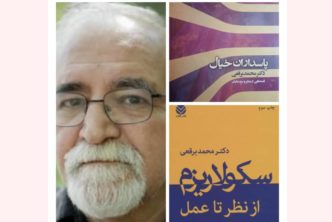Cairo 1st December 2008
http://www.anhri.net/en/reports/2008/pr1201.shtml
An Arabic translation of “Right to Life”, a book by Iranian human rights defender Emad Baghi, has been published by the Arabic Network for Human Rights Information and the
International Campaign for Human Rights in Iran. The book presents groundbreaking research in Islamic jurisprudence and Sharia supporting suspension and abolition capital punishment in countries following Islamic law.
“Right to Life” has been banned by Iranian authorities and Baghi has been imprisoned several times for articles he wrote making the arguments collected in this book.
The book is a comprehensive exposition of Baghi’s research arguing for abolition and suspension of the death penalty in Iran and other Islamic countries. As he wrote in a letter to the head of the Iranian Judiciary in April 2006, “Crime, felony, and executions are the results of and contributors to a culture of violence.” He has been tirelessly promoting abolition of the death penalty in Iran, he was also demonstrating that neither Qur’anic verses nor Islamic jurisprudence pose obstacles toward this goal.
“Right to Life” is an important and timely contribution to religious, political and civil society discussions in Iran and other countries that implement capital punishment under their interpretation of Islamic Sharia. As the worldwide movement towards abolition of the death penalty has gained unprecedented momentum in recent years, Islamic countries constitute one of the main blocks opposing this trend in the international arena. What is more, the practice of capital punishment isolates Islamic countries from the international community.
Baghi’s book provides persuasive arguments within the Islamic discourse for suspension and abolition of death penalty sentences in countries whose laws are based on an interpretation of Sharia. It is often argued that such laws are irrevocable, but Baghi’s research demonstrates that there is no such absolute requirement for the death penalty within Sharia or the Qur’anic verses.
The book is organized into three chapters: on executions in Sharia; on stoning; and on the abolition of the death penalty and alternative sentences. The first chapter argues that all death penalty punishments are legislated and implemented by governments and are not derived from Qur’anic verses. According to Baghi’s research, in cases of murder with the punishment of Qisas, or retribution, death sentences are not necessarily required by Qur’anic verses.
Baghi demonstrates that Qur’anic verses for retribution provide for pardons as well as blood money alternatives and do not impart an absolute requirement for carrying out executions. His research shows that when retribution is chosen, the decision of the next of kin is the necessary but not sufficient condition. He makes the important contribution that Islamic traditions could allow for inclusion of expert opinions—such as psychologists, sociologists, and criminologists—in addition to a public jury to determine the final sentencing. Therefore, a judge and the next of kin of the victim are not necessarily the only persons who may be responsible for making the final decision in cases of retribution relating to murder.
Baghi’s discussion of stoning in cases of adultery and its legal roots provides the powerful argument that such sentencing has no grounds in Qur’anic verses and indeed the death penalty is not prescribed by the Qur’an as its proponents advocate. “The stoning verdict in traditional Islamic jurisprudence (fiqh) is a legal command but it has no basis in the Qur’an,” he concludes.
Baghi’s conclusions are captured in his words of April 2006 to the head of Iranian Judiciary, Ayatollah Hashemi Shahrudi: “The killing of a human being is both the source and propagator of violence and has no relationship to kindheartedness, a caring society, and the benevolence of the Creator. It is hence necessary to stop the spread of crime, felony as well as executions as soon as possible.”
To view and download “Right to Life” in Persian and Arabic visit: http://www.gohod.net
http://www.iranhumanrights.org/index.php?id=14&tx_ttnews[tt_news]=138&no_cache=1
To order a free hard copy of “Right to Life” in Arabic send an email to:
19, 26 of July St. Downtown, 4th floor,
Cairo-Egypt
Tel: +20227736177
E-mail: [email protected]
Arabic Network for Human Rights Information http://www.anhri.net




